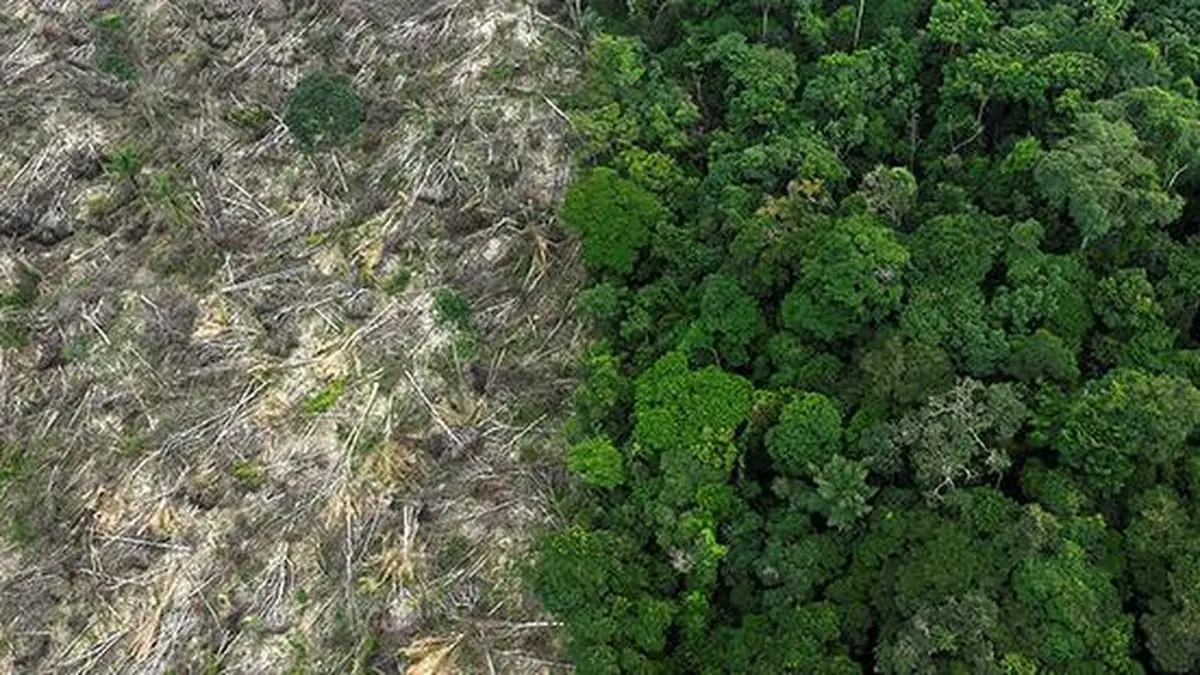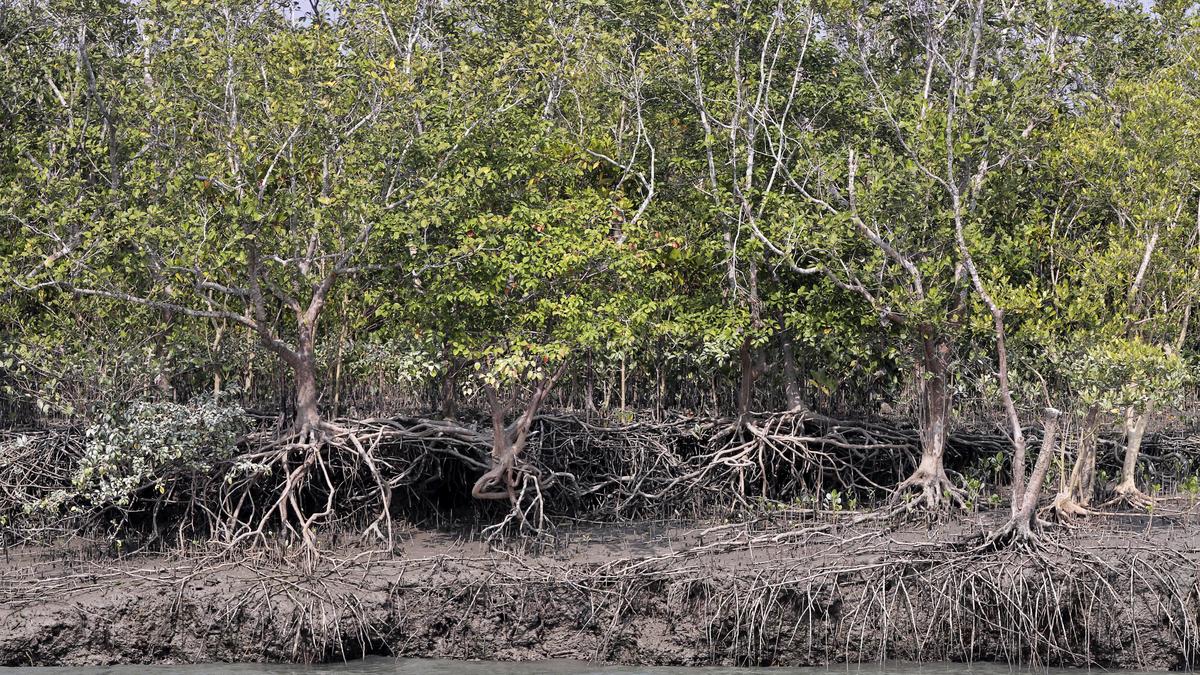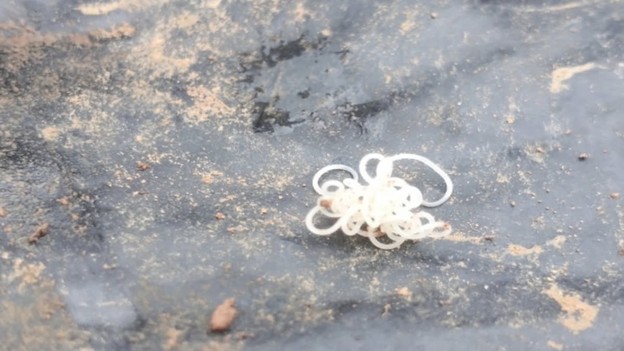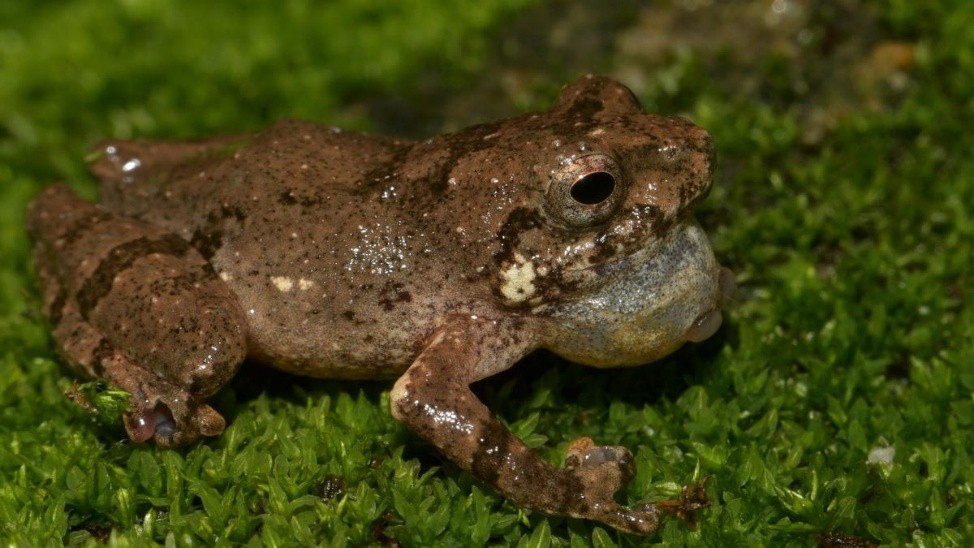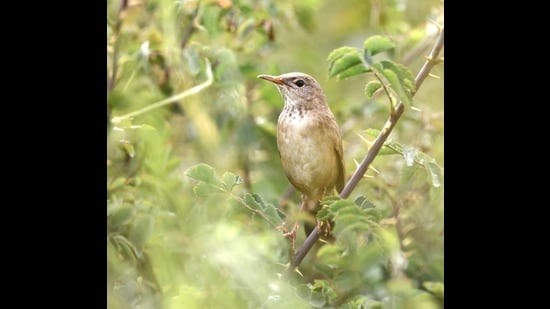Description
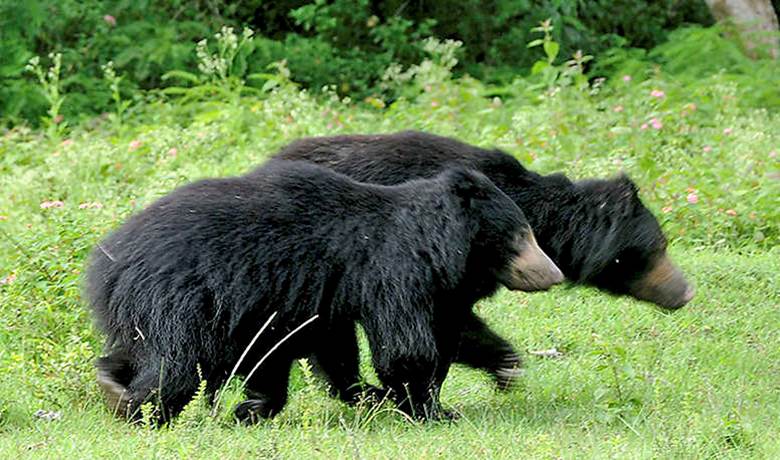
Copyright infringement not intended
Context: The first World Sloth Bear Day was observed on October 12 to generate awareness and strengthen conservation efforts around the unique bear species endemic to the Indian subcontinent.

Details:
- Classified as “vulnerable” on the IUCN Red List, sloth bears are endemic to the Indian sub-continent and 90% of the species population is found in India.
- A proposal for observing World Sloth Bear Day was mooted by Wildlife SOS India, an organisation involved in sloth bear conservation and protection for over two decades and the IUCN-Species Survival Commission sloth bear expert team accepted the proposal and declared the day to be celebrated worldwide.
- Listed under Schedule I of the (Wildlife Protection) Act of India, 1972, the species has the same level of protection as tigers, rhinos and elephants.
- A press statement issued by Wildlife SOS said the organisation rescued and rehabilitated over hundreds of “performing dancing bears, thereby resolving a 400-year-old barbaric tradition (of dancing bears) while also providing alternative livelihoods to the nomadic Kalandar community members”.
- Sloth bear (Melursus ursinus) were omnivorous and survived on termites, ants and fruits.
- Over the past few years there has been a rise of incidents of human sloth bear conflict in States like Gujarat, Rajasthan and Maharashtra among other states.
- Habitation:
- It mostly occurs in areas with forest cover, low hills bordering the outer range of the Himalayas from Punjab to Arunachal Pradesh.
- It is absent in the high mountainsof Himachal Pradesh and Jammu and Kashmir, the northwestern deserts of Rajasthan, and a broad unforested swath in the south.
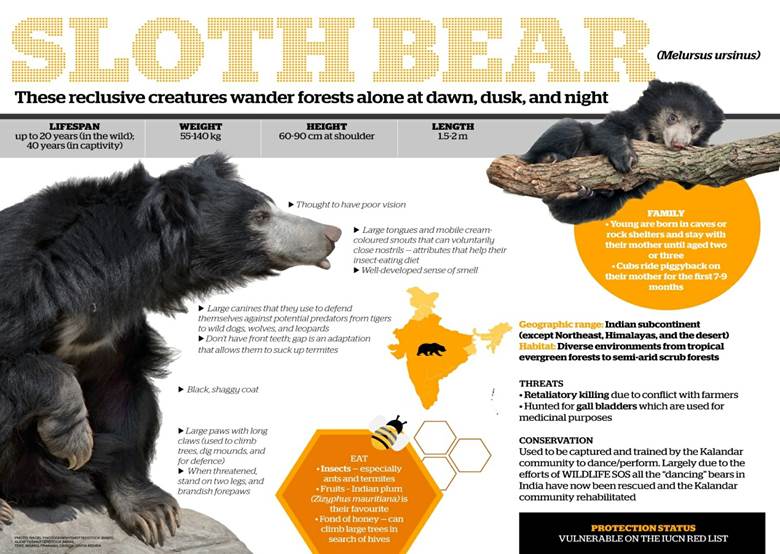
https://epaper.thehindu.com/Home/ArticleView








